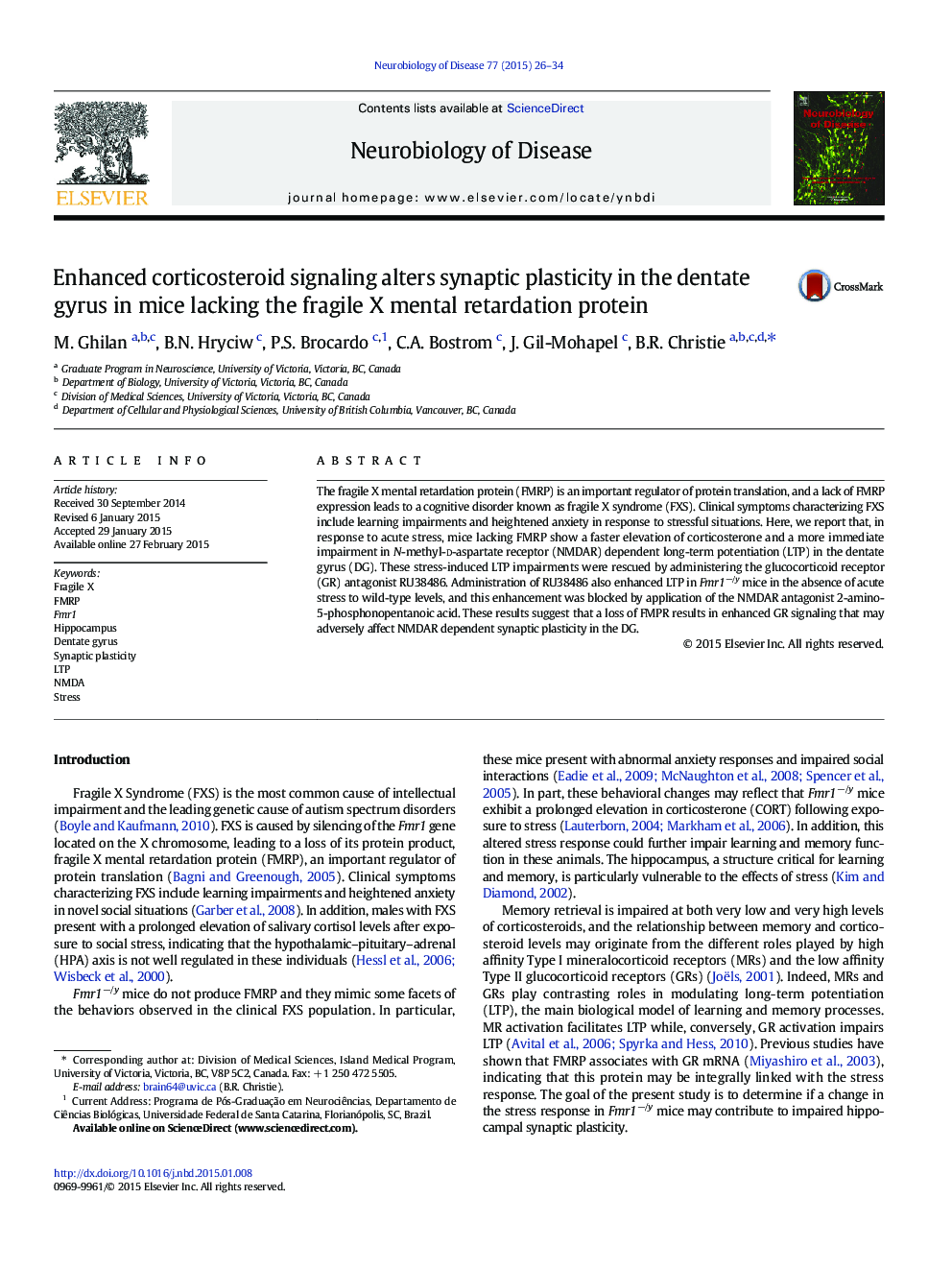| کد مقاله | کد نشریه | سال انتشار | مقاله انگلیسی | نسخه تمام متن |
|---|---|---|---|---|
| 3069339 | 1580646 | 2015 | 9 صفحه PDF | دانلود رایگان |
• Stress produces more immediate increases in corticosteroids in FXS animals lacking FMRP.
• Dentate gyrus LTP is more rapidly affected by stress in FXS animals.
• Blockade of glucocorticoid receptors restores synaptic plasticity in FXS mice.
• Synaptic plasticity in the CA1 subfield is not affected by stress in mice.
The fragile X mental retardation protein (FMRP) is an important regulator of protein translation, and a lack of FMRP expression leads to a cognitive disorder known as fragile X syndrome (FXS). Clinical symptoms characterizing FXS include learning impairments and heightened anxiety in response to stressful situations. Here, we report that, in response to acute stress, mice lacking FMRP show a faster elevation of corticosterone and a more immediate impairment in N-methyl-d-aspartate receptor (NMDAR) dependent long-term potentiation (LTP) in the dentate gyrus (DG). These stress-induced LTP impairments were rescued by administering the glucocorticoid receptor (GR) antagonist RU38486. Administration of RU38486 also enhanced LTP in Fmr1−/y mice in the absence of acute stress to wild-type levels, and this enhancement was blocked by application of the NMDAR antagonist 2-amino-5-phosphonopentanoic acid. These results suggest that a loss of FMPR results in enhanced GR signaling that may adversely affect NMDAR dependent synaptic plasticity in the DG.
Journal: Neurobiology of Disease - Volume 77, May 2015, Pages 26–34
